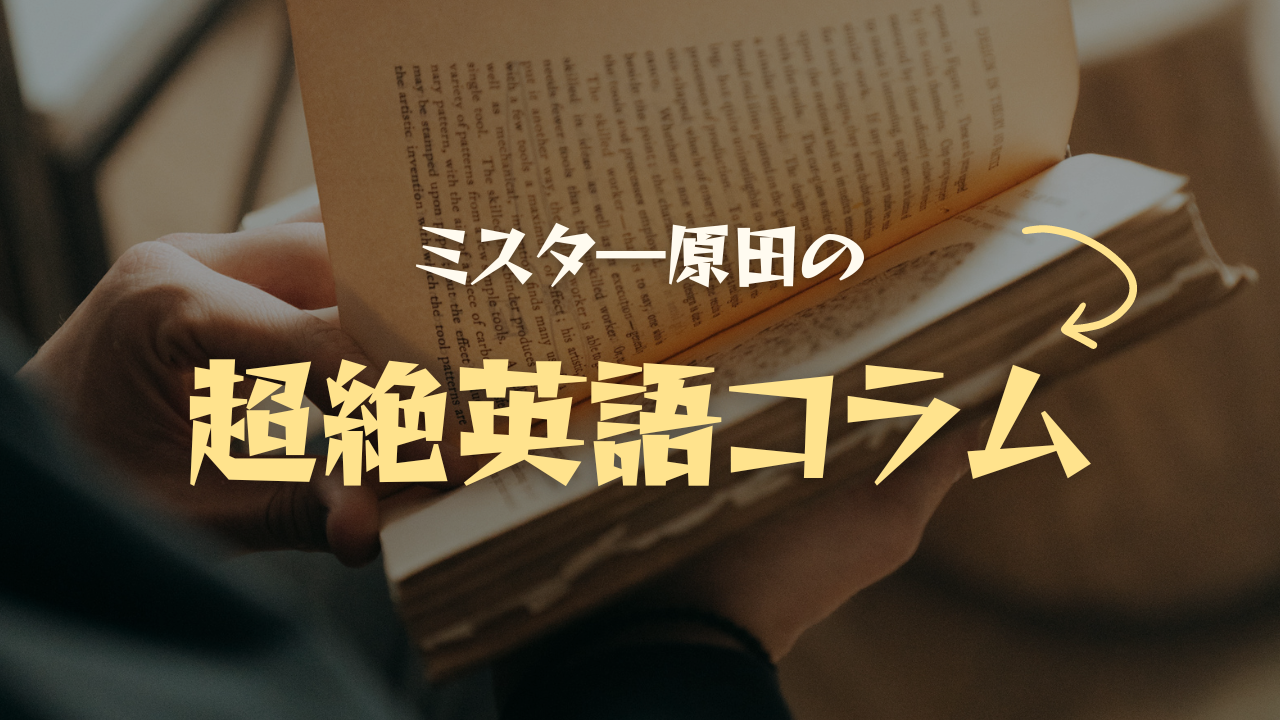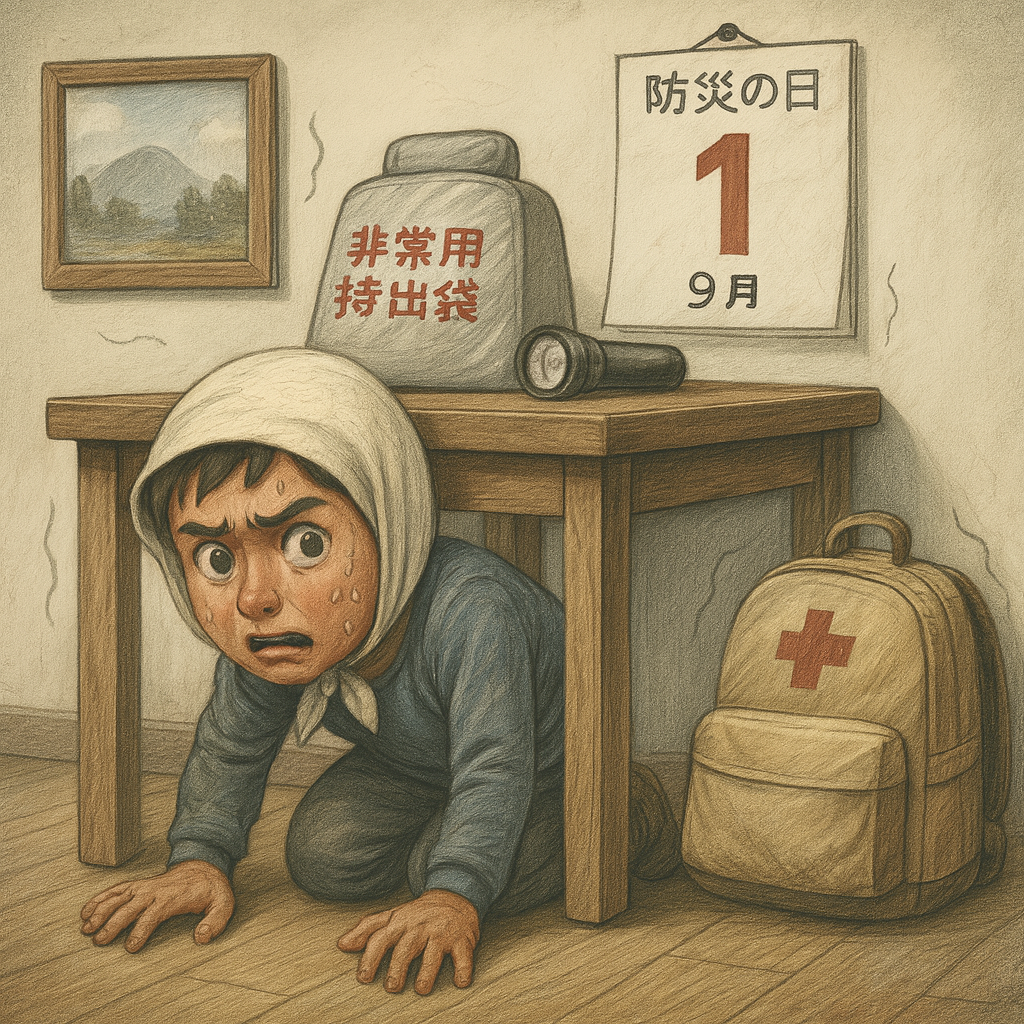
防災の日と “Better safe than sorry” ~備えあれば憂いなし~
本日9月1日は「防災の日」。英語では “Disaster Prevention Day” や “Emergency Preparedness Day” などと訳される、災害への備えを国民一人ひとりが再確認するための重要な一日だ▼この日付は、1923年9月1日に発生し、10万人以上の死者・行方不明者を出した「関東大震災」に由来する。この甚大な被害を教訓とし、災害への心構えを忘れないために制定された。また、暦の上では二百十日にあたり、台風の襲来が多い時期とも重なっている▼英語には “Better safe than sorry” という諺がある。直訳すると「後で後悔するより、安全な方が良い」となり、日本語の「備えあれば憂いなし」や「転ばぬ先の杖」に非常に近い意味を持つ。まさに防災の日の精神を的確に表した言葉と言えるだろう▼安否確認の際に使われる “Are you okay?” というフレーズも、災害時には非常に重要な意味を持つ。しかし、本当に深刻な状況では、より具体的な質問が求められることもある。例えば、”Do you need immediate help?”(すぐに助けが必要ですか?)や “Is everyone accounted for?”(全員の安否は確認できましたか?)といった表現は、緊急時のコミュニケーションで役立つはずだ▼私自身、海外で小さな地震に遭遇した際、現地の友人たちが意外なほど落ち着いていたことに驚いた経験がある。彼らの国では地震が稀なため、避難訓練などの経験もほとんどない。しかし、彼らは冷静に “Let’s get under the table.”(テーブルの下に入ろう)と声を掛け合った。マニュアル通りの行動というより、その場で最善を尽くすという姿勢に、文化の違いを感じた▼日本は世界有数の災害大国であり、防災意識は他国に比べて高いと言われる。しかし、その備えが本当に十分か、定期的に見直すことが重要だ。防災グッズの中身は万全か、家族との連絡手段は決まっているか。この「防災の日」を機に、”Better safe than sorry” の精神で、今一度身の回りの備えを確認してみてはいかがだろうか。

【英語訳】Disaster Prevention Day and “Better Safe Than Sorry”
Today, September 1st, is “Disaster Prevention Day” in Japan. In English, it’s often translated as “Disaster Prevention Day” or “Emergency Preparedness Day,” and it serves as a crucial day for every citizen to re-evaluate their disaster preparedness.
This date originates from the Great Kanto Earthquake, which occurred on September 1, 1923, causing over 100,000 deaths and missing persons. The day was established to ensure that the lessons learned from this catastrophic event are never forgotten. It also coincides with Nihyaku-toka on the traditional calendar, a period known for being prone to typhoons.
There is an English proverb, “Better safe than sorry.” This phrase, which means it’s wiser to be cautious than to regret it later, closely aligns with the Japanese sayings “Sonae areba urei nashi” (If you are prepared, you will have no regrets) and “Korobanu saki no tsue” (A cane before a fall). It perfectly captures the spirit of Disaster Prevention Day.
The common phrase “Are you okay?” takes on a critical meaning during a disaster. However, in truly serious situations, more specific questions may be necessary. For instance, expressions like “Do you need immediate help?” or “Is everyone accounted for?” can be vital for emergency communication.
I personally experienced a minor earthquake while abroad and was surprised by how calm my local friends were. Earthquakes are rare in their country, so they have little experience with evacuation drills. Yet, they calmly said to each other, “Let’s get under the table.” It wasn’t a by-the-book reaction, but rather an attitude of doing the best they could in the moment, which made me feel a cultural difference.
Japan is one of the world’s most disaster-prone countries, and its level of disaster awareness is said to be high. However, it is essential to regularly review whether these preparations are truly sufficient. Are your emergency supplies fully stocked? Have you established a method of contact with your family? On this Disaster Prevention Day, why not re-check your preparations with the spirit of “better safe than sorry”?







